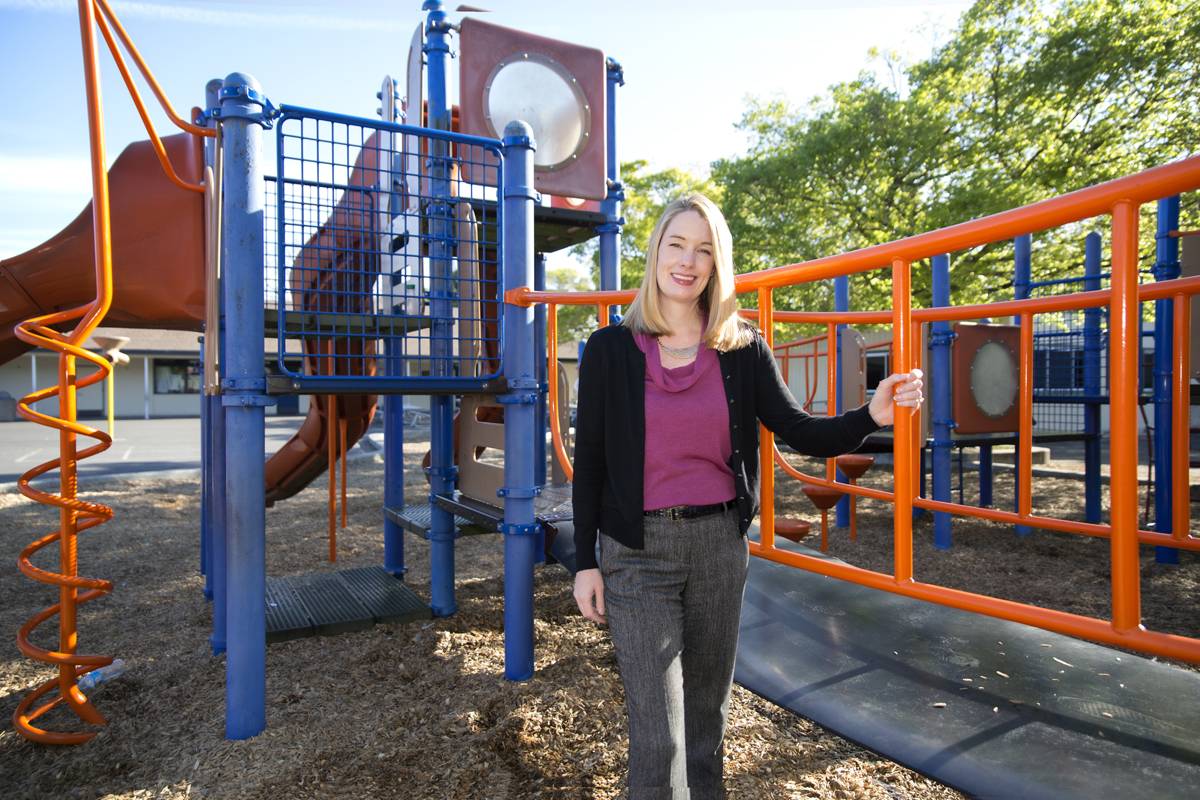Alumni Interview: Ann Waterman Roy T’05
Launching a new public school takes an entrepreneurial spirit, but many of the best educators have never been schooled in finance, management, and operations. Enter Ann Waterman Roy T’05.

Launching a new public school takes an entrepreneurial spirit, but many of the best educators have never been schooled in finance, management, and operations. Enter Ann Waterman Roy T’05.
After 10 years in Boston leading schools and strategy in the district and partner organizations, she relocated to California and is now managing director of schools and operations for Innovate Public Schools. Today she trains teachers and administrators to start and lead the Bay Area’s next great public schools, helping “a team of passionate, smart, talented educational entrepreneurs figure out how to take something from an idea to actual fruition.”
Innovate Public Schools is a three-year-old nonprofit based in San Jose, California. What problem is the organization trying to solve and how?
The Bay Area has some of the best schools in the country, but it also has some really inadequate ones. And unfortunately access is often divided based on economics. Innovate is dedicated to creating access to great schools for every kid in the Bay Area, with a particular focus on low income and students of color. Part of our strategy is to build political will, organizing families and parents to advocate for change in their communities. We also do research and policy—putting out reports on what’s working well and what isn’t—to really empower those parents. And for the school support team, which I lead, our anchor program is a Start-Up Schools Fellowship, which is basically a planning year for principals and a small design team who are planning to launch a new public school within two years. That can be a charter school or a traditional district school. We also support teams who are planning to redesign an existing underperforming school.
Innovate sees research as a key ingredient for successful advocacy. Your 2013 report “Broken Promises” served as a wake-up call for educators and families. But you also see data and research as critical tools to improve leadership and instruction. How?
Schools and school systems are complex organizations—being successful with all kids involves a tremendous amount of data and rapid decision-making by professionals at all levels—teachers, principals, and district and network leaders. Teachers are in front of 25-30 kids who all come knowing different things; teachers have to be very clear what it is they want students to learn, and constantly gather data to see what kids have mastered. Strong teachers use that information to adapt their teaching strategy that day or week, and then repeat the process all year long. School leaders need to allocate their very limited time and resources to the initiatives they think will have the greatest impact. Good school leaders constantly review student data to check the impact of their strategic investments, and pivot if needed. I think there’s a ton of parallel in the private sector—the best organizations build in a sense of kaizen, where everyone takes ownership for the quality of the end product. And you can’t build that culture of continuous improvement unless you’re looking at data to see where you’re successful.
How has your Tuck education helped you in your role at Innovate?
It’s been incredibly valuable. I get to tap into the skill set I have to help these really talented educators who often haven’t had formal training in management, operations, or leadership. Ella Bell Smith’s Leadership Out of the Box elective has been personally useful for me as I’ve developed my own leadership style, and it’s been really helpful as I coach leaders, many of whom don’t see themselves in the traditional dominant, charismatic leadership style. My marketing classes helped me guide new schools on positioning themselves in their educational market and effectively recruiting families. Also, building models and forecasting—I’ve spent a lot of time analyzing complex data sets to understand our market and the impact of our strategic investments. And in my current role, I help school leaders understand how their budget tells the story of their organization and where their resources are allocated. There were also several courses that emphasized accountability. That’s been a key concept that I come back to repeatedly.
Why is accountability a key ingredient in improving education?
That you can still be accountable for something you can’t totally control—but that you can influence heavily—has been a recurring theme for me, even though it’s often hard for people to grasp. Sometimes people say, you know, “those kids have so many challenges, they come in with so many things holding them back, how can we expect them to do well?” And that drives me absolutely insane. As an educator, you don’t have control over students’ lives outside of school, but you have an immense amount of influence. Yes, poor students, non-English speakers, and students of color face real and often major challenges that other kids don’t. And there are any number of schools now that are proving that poor students can achieve at the same levels as more affluent kids if they are given the right support and held to the same high expectations. Our challenge is to say, “yes, and”—we see the challenges, and what can we do about it in our classrooms? The schools I get to work with are taking on these challenges every day and are proving what is possible. It’s incredibly inspiring.
